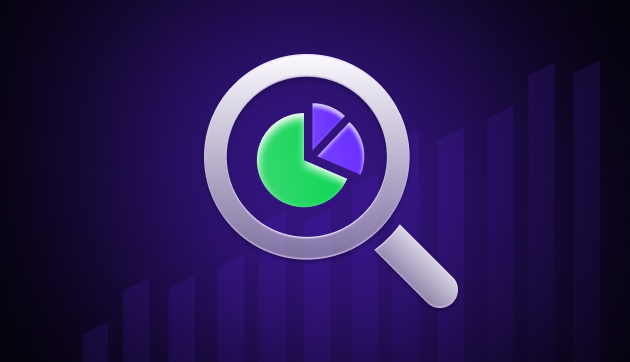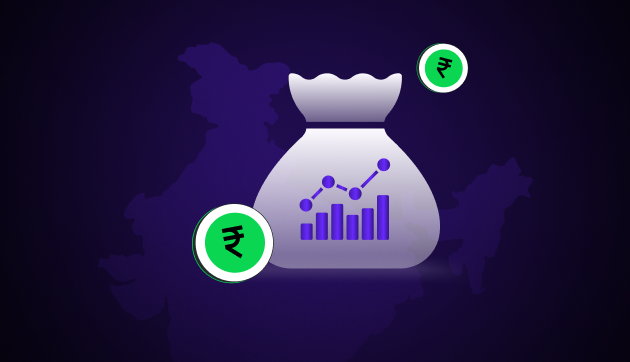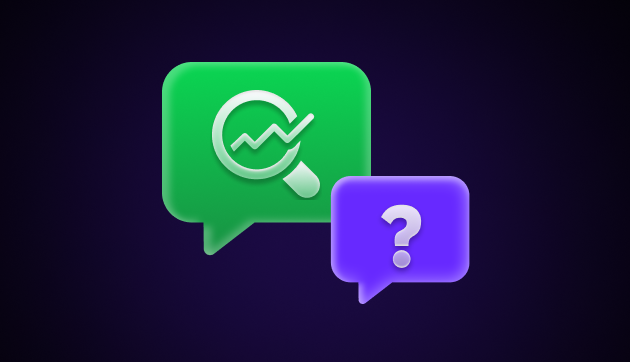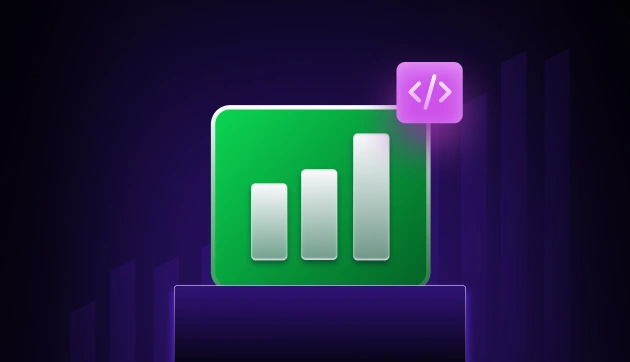
Business Analyst Job Description: Key Skills & Tools You Need to Know
Mar 28, 2025 7 Min Read 2851 Views
(Last Updated)
In a world where data is the new gold, businesses are constantly mining it to uncover insights that fuel their next big move. But let’s be real, raw data doesn’t just magically translate into genius strategies. That’s where Business Analysts step in, rocking the role of the ultimate problem-solvers and connectors.
In this blog, we’ll break down what being a Business Analyst means. From decoding Business Analyst job description to exploring the skills and tools they use, we’ve got you covered. Oh, and if you’re wondering how to stand out in this super-dynamic field, we’ve got tips for that too. Ready to dive into the world of Business Analysts? Let’s go!
Table of contents
- Understanding the Role of a Business Analyst
- Key Responsibilities in a Business Analyst Job Description
- Requirement Gathering and Analysis:
- Process Mapping and Optimization:
- Stakeholder Communication:
- Solution Design and Validation:
- Data Analysis and Reporting:
- Project Support and Management:
- Change Management:
- Performance Monitoring:
- Essential Skills Required for Business Analyst Roles
- Analytical Thinking
- Communication Skills
- Technical Proficiency
- Stakeholder Management
- Problem-Solving
- Requirement Gathering
- Agile Methodology Knowledge
- Decision-Making
- Common Tools & Technologies Used by Business Analysts
- Microsoft Excel
- Tableau/Power BI
- SQL (Structured Query Language)
- How to Stand Out in Business Analyst Job Interviews
- Craft a Tailored Resume:
- Build a Strong Portfolio:
- Earn Certifications:
- Career Path and Growth Opportunities in Business Analytics
- Business Analyst
- Data Analyst
- Data Scientist
- Business Intelligence (BI) Analyst
- Marketing Analyst
- Product Analyst
- Chief Data Officer (CDO)
- Wrapping Up
- Frequently Asked Questions
- Can I become a business analyst without a business background?
- What does a business analyst do?
- Do I need to know coding to become a business analyst?
Understanding the Role of a Business Analyst
A Business Analyst is a key professional who acts as the bridge between business goals and technological solutions, ensuring that organizations operate efficiently and meet their objectives. They focus on understanding business processes, identifying challenges, and designing data-driven strategies to solve real-world problems.
Business Analysts are the masterminds behind the workflows, systems, and strategies that power businesses. From enhancing customer experiences to optimizing operations, they help organizations navigate challenges and unlock their full potential.
Business Analysts excel at gathering requirements, analyzing data, and proposing actionable insights that drive decision-making. They are skilled at translating business needs into clear, actionable plans for tech teams and stakeholders.
Primary Tasks: Identifying business problems, defining requirements, and collaborating frequently with stakeholders, developers, and project managers to ensure smooth execution and impactful outcomes.
Key Responsibilities in a Business Analyst Job Description
Business Analysts play a crucial role in bridging the gap between business needs and technological solutions, ensuring organizations achieve their goals efficiently. Their responsibilities span across various phases of project and process management, making them indispensable in driving business transformation and strategic growth. Here are the essential duties that define this dynamic role:
Requirement Gathering and Analysis:
Business Analysts collaborate closely with stakeholders such as business leaders, project managers, and technical teams to gather detailed requirements. They use techniques like interviews, workshops, and document analysis to ensure every stakeholder’s input is captured. Additionally, Business Analysts break down complex requirements into manageable tasks and create user stories or use cases to guide the development process.
Process Mapping and Optimization:
Business Analysts are responsible for analyzing existing workflows, identifying inefficiencies, and proposing streamlined processes to improve operational efficiency. They use tools like flowcharts, swimlane diagrams, and process maps to visually represent workflows, helping stakeholders understand inefficiencies. They recommend automation, resource reallocation, or redesigning workflows to reduce bottlenecks, improve productivity, and align processes with business goals.
Stakeholder Communication:
Business Analysts act as the primary point of contact between business teams and technical teams, ensuring seamless collaboration and understanding. They act as translators, ensuring business teams understand technical constraints and tech teams grasp business priorities. Regular updates, presentations, and stakeholder meetings keep everyone aligned and engaged throughout the project lifecycle.
Solution Design and Validation:
Business Analysts contribute to designing business solutions and validate them against requirements to ensure they align with organizational goals. They collaborate with developers, UX designers, and architects to craft solutions that meet business needs. They participate in system testing, user acceptance testing (UAT), and review prototypes or wireframes to ensure the solutions meet stakeholder expectations and functional requirements.
Data Analysis and Reporting:
Business Analysts dive deep into datasets using tools like Excel, Tableau, or Power BI to uncover trends, patterns, and anomalies. They deliver actionable insights through dashboards, visualizations, and reports that help business leaders make informed, data-driven decisions.
Project Support and Management:
Business Analysts support project managers by monitoring progress, managing risks, and ensuring projects are delivered on time and within scope. They help define project scope, identify potential risks, and recommend mitigation strategies. By managing timelines, budgets, and resource allocation, they ensure smooth execution. Their involvement in agile ceremonies like stand-ups, sprint planning, and retrospectives enhances project outcomes.
Change Management:
Business Analysts help organizations adapt to new processes and systems by preparing impact assessments and providing training to stakeholders. When new solutions are implemented, they create change management plans that minimize disruption. This includes preparing impact assessments, conducting training sessions for end-users, and creating user guides or documentation to ease the transition.
Performance Monitoring:
Post-implementation, Business Analysts continuously monitor the performance of systems and processes. They track key performance indicators (KPIs), gather feedback from users, and recommend iterative improvements to ensure long-term success.
Read More: 10 Best Websites to Learn Business Analytics in India
Essential Skills Required for Business Analyst Roles
Success in the role of a Business Analyst hinges on mastering a blend of technical, analytical, and interpersonal skills. From uncovering actionable insights to fostering collaboration across teams, the following essential skills form the foundation for driving impactful solutions and achieving business goals.
1. Analytical Thinking
Analytical thinking is at the heart of a Business Analyst’s role, enabling them to break down complex problems into manageable parts and extract actionable insights. This skill helps identify trends, understand root causes, and recommend strategic solutions that align with business objectives. Whether analyzing financial reports or customer data, a sharp analytical mindset drives better decision-making and process improvement.
2. Communication Skills
Clear and effective communication is critical for a Business Analyst, as they must bridge the gap between technical teams and business stakeholders. Strong verbal and written communication ensures everyone is aligned with project objectives, no matter their technical background. From preparing detailed business requirement documents to presenting insights in stakeholder meetings, excellent communication helps foster collaboration and prevent misunderstandings.
3. Technical Proficiency
In today’s data-driven world, understanding tools like SQL, Tableau, or Power BI is essential for a Business Analyst. These tools empower analysts to extract, manipulate, and visualize data effectively, turning raw information into valuable insights. Whether crafting an interactive dashboard to showcase performance metrics or writing SQL queries to extract critical data, technical proficiency is a game-changer for modern Business Analysts.
4. Stakeholder Management
Managing diverse stakeholders is a fundamental skill for Business Analysts, requiring exceptional interpersonal abilities to navigate different perspectives and priorities. BAs act as liaisons between teams, ensuring expectations are met while mediating potential conflicts. Regular engagement, active listening, and providing updates keep stakeholders informed and invested throughout the project lifecycle.
5. Problem-Solving
A proactive approach to problem-solving is vital for addressing challenges and identifying opportunities for improvement. Business Analysts often face bottlenecks, inefficiencies, or changing market demands, which require innovative solutions. Whether optimizing workflows, enhancing user experiences, or identifying areas for cost savings, problem-solving is a cornerstone of a successful BA’s toolkit.
6. Requirement Gathering
Requirement gathering is a critical phase in any project, and Business Analysts must excel at techniques like interviews, surveys, and workshops. This ensures they capture clear, actionable, and accurate requirements from stakeholders. By engaging with users and understanding their needs, BAs create a solid foundation for delivering solutions that meet expectations and add value.
7. Agile Methodology Knowledge
Familiarity with Agile methodologies is increasingly important for Business Analysts, as many organizations adopt Agile frameworks for project management. Understanding Agile principles enables BAs to contribute effectively to iterative development cycles, prioritize tasks, and adapt to changes quickly. Writing user stories, participating in sprints, or attending stand-ups ensures projects remain efficient and on track.
8. Decision-Making
Strong decision-making skills are crucial for Business Analysts, who often balance competing priorities to determine the best course of action. Using data-driven insights, they assess options and make impactful decisions that align with business goals. Whether evaluating the feasibility of a new system or prioritizing tasks in a product backlog, sound decision-making is indispensable for a Business Analyst’s success.
Common Tools & Technologies Used by Business Analysts
Business Analysts rely on a versatile toolkit to extract, analyze, and present data effectively while bridging the gap between technical teams and business stakeholders. With tools tailored for everything from data visualization to database querying, these technologies empower Business Analysts to make informed decisions and drive impactful business changes. Below, we explore three essential tools that every Business Analyst should master.
1. Microsoft Excel
Microsoft Excel remains a cornerstone tool for Business Analysts due to its versatility and ease of use. Whether performing complex data analysis or creating financial models, Excel offers powerful features that simplify and enhance workflows.
Key Features:
- Advanced functions like VLOOKUP, pivot tables, and macros for efficient data manipulation and analysis.
- Built-in charting and graphing tools to create professional visuals for reporting.
- Add-ons like Power Query and Power Pivot extend its data processing capabilities.
- Universally accessible, ensuring seamless collaboration across teams and industries.
2. Tableau/Power BI
Tableau and Power BI are leading data visualization tools that help Business Analysts transform raw data into interactive and visually appealing dashboards. These tools are essential for presenting complex insights in a format that’s easy for stakeholders to understand and act upon.
Key Features:
- Drag-and-drop interfaces for creating custom dashboards without needing extensive technical expertise.
- Real-time data integration from various sources, including cloud services and local databases.
- Advanced visualization types like heatmaps, scatter plots, and geographic maps for in-depth storytelling.
- Support for collaboration and sharing insights through secure, web-based platforms.
3. SQL (Structured Query Language)
SQL is an indispensable tool for Business Analysts working with large datasets stored in relational databases. Mastering SQL allows BAs to query, extract, and analyze data directly, enabling them to uncover actionable insights efficiently.
Key Features:
- Enables data retrieval through SELECT queries, data filtering, and aggregation for detailed analysis.
- Support for data joining and transformation to create meaningful datasets for reporting.
- Widely compatible with databases like MySQL, PostgreSQL, and Microsoft SQL Server, ensuring flexibility across projects.
- Foundation for understanding data storage structures, and improving collaboration with technical teams.
You might Like: Top 11 Business Analytics Courses and Certifications in India
How to Stand Out in Business Analyst Job Interviews
To secure a Business Analyst role, it’s not enough to simply showcase your analytical skills and experience. You must strategically position yourself to stand out in a competitive job market. By focusing on your skills, experience, and approach, you can set yourself apart from other candidates. Here are the key strategies to excel in Business Analyst job interviews:
Craft a Tailored Resume:
Your resume is your first impression, so it’s crucial to make it count. Focus on highlighting the skills, projects, and achievements that are most relevant to the job you’re applying for. Emphasize key business analysis skills, such as requirements gathering, process modeling, data analysis, and your proficiency with tools like SQL, Tableau, and Power BI.
Be sure to include specific examples of how you’ve added value in previous roles. For instance, “Improved business process efficiency by 20%” or “Reduced customer support response time by 15% through process optimization.”
Build a Strong Portfolio:
A portfolio is an excellent way to showcase your practical skills and real-world experience. If you have experience working with data analysis tools, consider sharing examples of dashboards or reports you’ve built using Tableau, Power BI, or Excel. For each project, include key metrics and outcomes that demonstrate your ability to deliver value.
Create an online presence by sharing your work on platforms like GitHub, LinkedIn, or a personal website. Having a centralized location for your portfolio makes it easy for hiring managers to see your work, and it shows you’re proactive and serious about your career. Update your portfolio regularly as you gain more experience and tackle new projects. Showing that you’re continuously learning and refining your skills is a powerful way to demonstrate your growth potential.
Earn Certifications:
Earning a Business Analyst certification helps validate your skills, build credibility, and boost your employability in this competitive field. When choosing a Business Analytics course, look for programs that balance theory with hands-on projects. A well-rounded Business Analytics course combines technical proficiency with strategic insight. It provides the necessary skills to analyze and interpret data, create actionable business strategies, and communicate findings effectively. Pick courses offering interactive assignments and access to tools commonly used in the industry, like PowerBI. Seek courses with credible certifications from recognized institutions, like GUVI’s Business Analytics Course, as these add significant value to your resume and provide assurance of quality learning.
Career Path and Growth Opportunities in Business Analytics
The demand for business analysts has surged as organizations recognize the value of data-driven decision-making. With businesses increasingly relying on analytics to drive strategy and optimize operations, the need for skilled professionals in business analytics is expected to grow rapidly.
The World Economic Forum reports that data-driven roles are among the fastest-growing job categories, offering numerous career opportunities and paths for growth. Below are some prominent career roles within business analytics, each offering unique responsibilities and requiring specific expertise:
Business Analyst
Business Analysts bridge the gap between business needs and IT solutions. They are responsible for gathering and analyzing data to inform business decisions, documenting requirements, and ensuring that the final solutions meet business objectives. As a BA, you can specialize in specific industries such as finance, healthcare, or IT, offering opportunities for career advancement into roles such as Senior Business Analyst or Business Analysis Manager.
Data Analyst
Data Analysts work with large datasets to identify trends, patterns, and insights that inform business strategies. They are experts in data cleaning, processing, and visualization using tools like Excel, SQL, and Tableau. Many Data Analysts advance to Data Scientist roles or specialize in certain sectors such as marketing, operations, or finance, where they can delve deeper into data modeling and predictive analytics.
Data Scientist
Data Scientists utilize advanced statistical methods, machine learning, and data mining techniques to analyze and interpret large datasets. They develop predictive models and algorithms to solve business problems. With a strong foundation in programming, statistics, and machine learning, Data Scientists often transition to leadership positions such as Chief Data Scientist or Data Science Manager, or they may choose to focus on specialized fields like machine learning or artificial intelligence.
Business Intelligence (BI) Analyst
Business Intelligence Analysts focus on analyzing business data through dashboards and reports to help organizations make data-driven decisions. They use BI tools like Power BI, Tableau, or QlikView to create visual representations of business performance. BI Analysts often move into BI Developer or BI Manager roles, or specialize in data warehousing or analytics consulting.
Marketing Analyst
Marketing Analysts leverage business analytics to understand customer behavior, market trends, and campaign performance. They use data to drive marketing strategies, optimize advertising budgets, and improve customer targeting. With a strong understanding of data analytics tools and marketing strategies, Marketing Analysts can transition into Senior Marketing Analyst or Digital Marketing Manager roles, where they manage larger marketing projects and teams.
Product Analyst
Product Analysts use business analytics to gather customer feedback, assess product performance, and guide product development strategies. By analyzing usage patterns, market trends, and consumer behavior, they help shape the direction of a product. Product Analysts can move into roles like Product Manager or even Chief Product Officer (CPO) as they gain more experience.
Chief Data Officer (CDO)
The Chief Data Officer is an executive role responsible for overseeing the organization’s data strategy and governance. CDOs ensure that data is used efficiently and securely across all departments. This leadership position often requires years of experience in business analytics, data management, and team leadership.
Wrapping Up
If you’re thinking about diving into the world of business analytics, you’re definitely on the right track! The field is growing fast, and there’s a ton of room for you to make an impact. Whether you’re analyzing data, building dashboards, or using AI to solve real-world problems, there’s something for everyone in this space.
The best part? You don’t have to follow a straight path you can specialize in marketing, finance, operations, or even become a data-driven consultant. Keep learning, keep experimenting, and take every opportunity to grow your skills. With the right mindset and a bit of hustle, the career opportunities are endless!
Frequently Asked Questions
Absolutely! Many successful business analysts come with zero business or technical backgrounds. The key is to build analytical and technical skills and understand business processes.
A business analyst acts as a bridge between business teams and technical teams. They identify business problems, analyze data, gather requirements, and propose solutions to improve processes, products, or services.
While coding isn’t mandatory, knowing basic SQL for querying databases and understanding tools like Python or R can give you an edge. Most of the role involves analyzing data and communicating findings, not hardcore programming.































Did you enjoy this article?